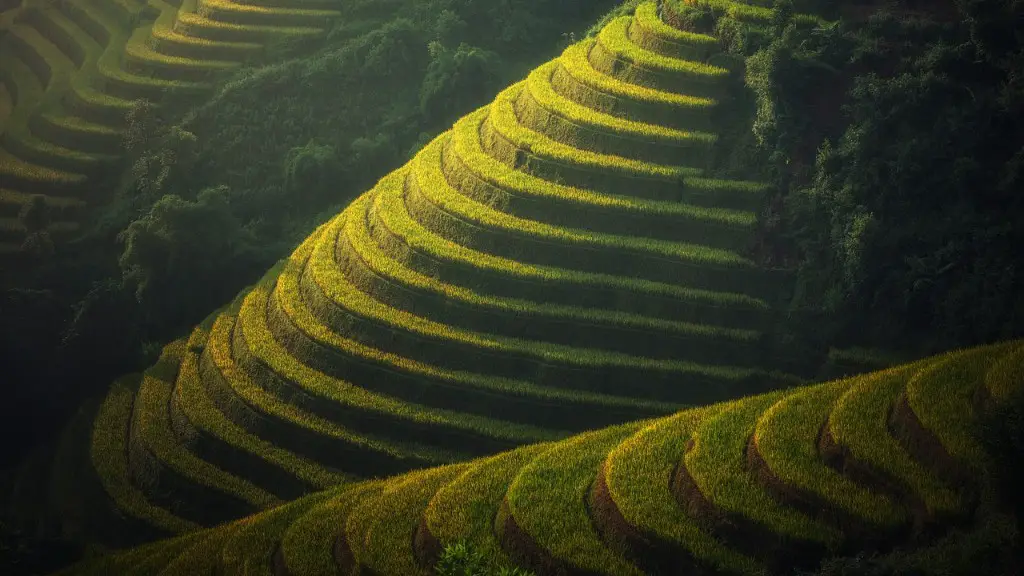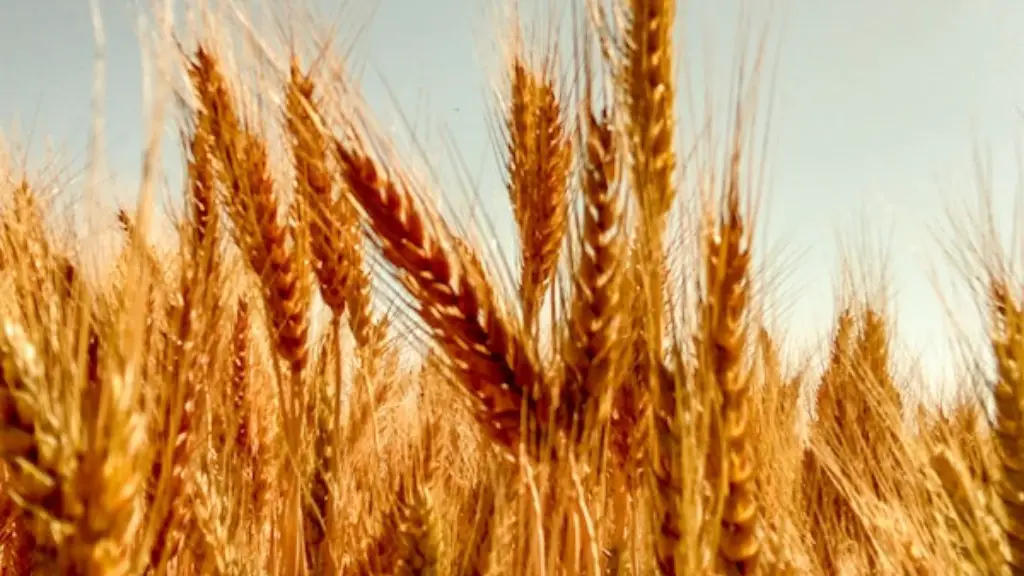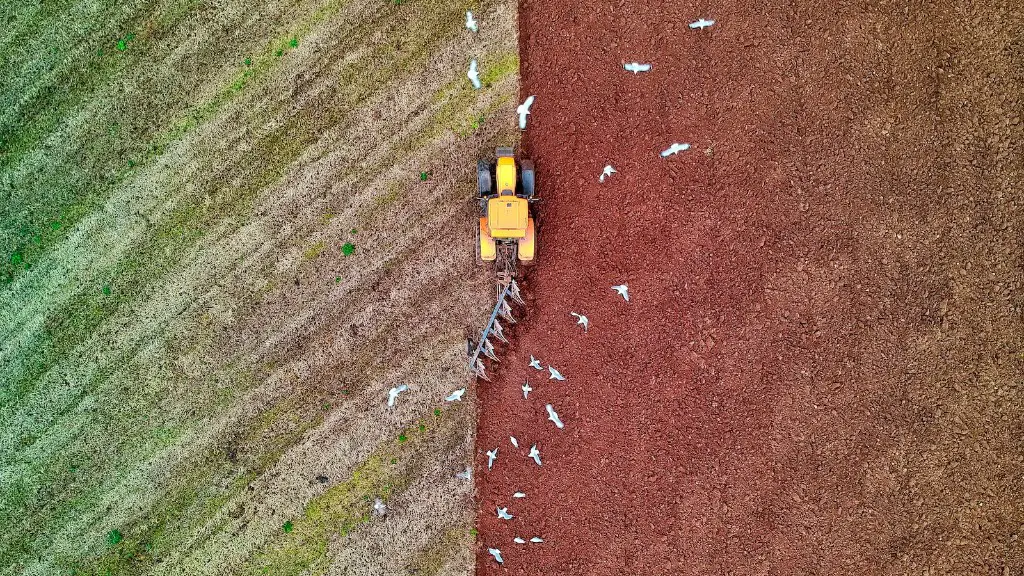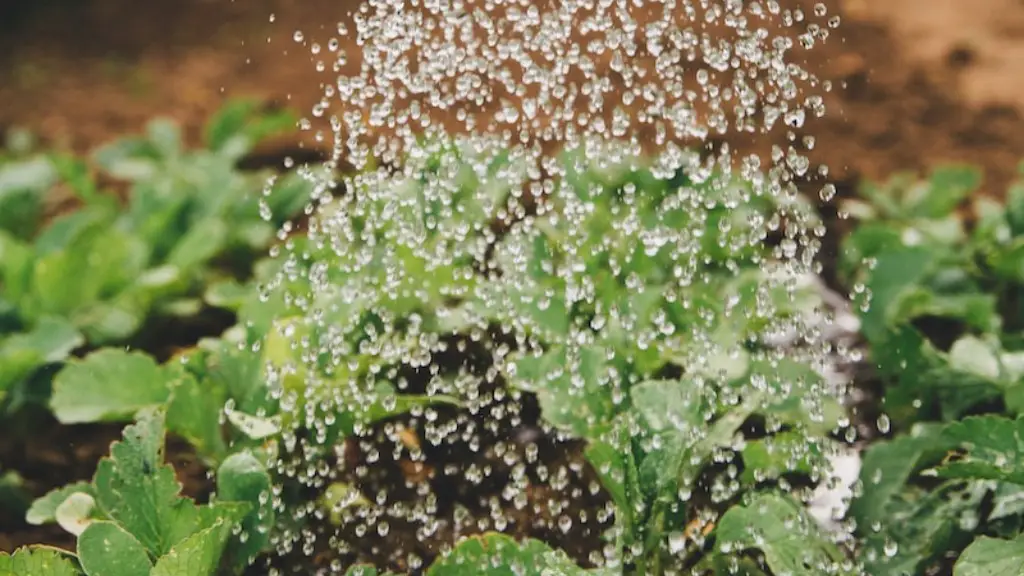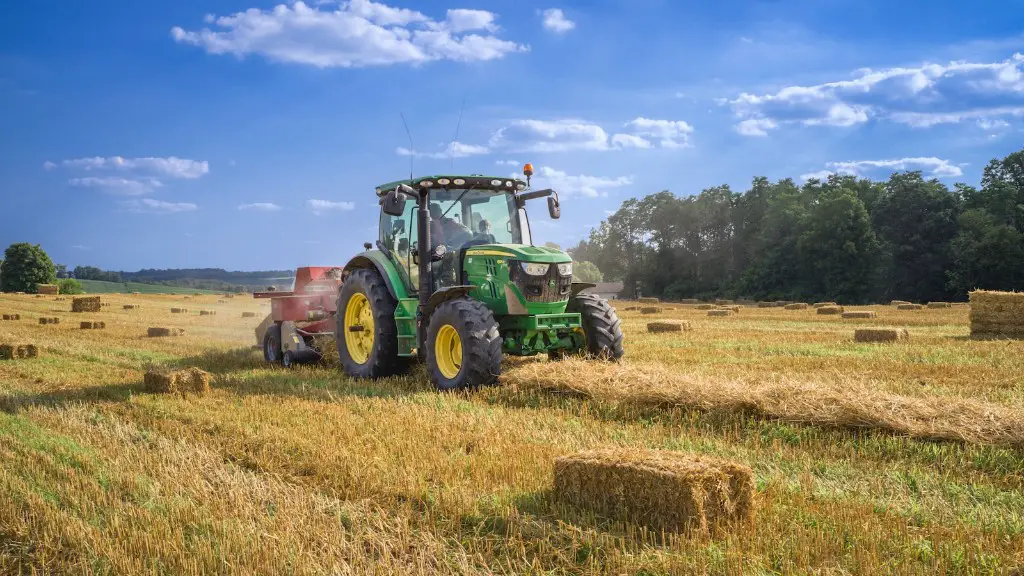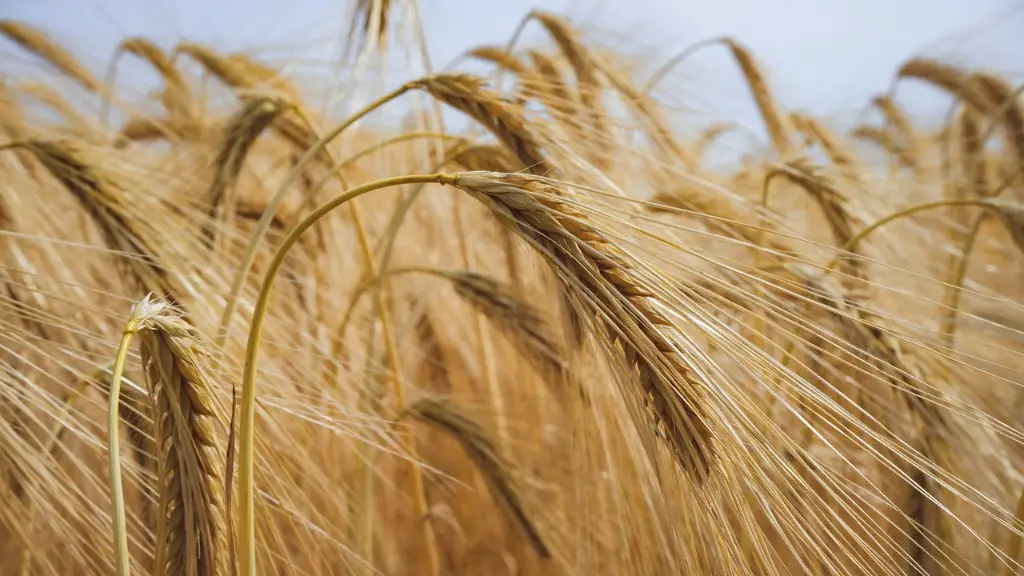If you ask any farmer what they do, they will likely tell you that they grow crops or rear livestock. While this is technically true, it doesn’t really give you an accurate idea of the modern-day farmer’s job. The fact is, farming has changed a lot in recent years, and it continues to change. One of the most important changes is the growth of specialty agriculture.
Specialty agriculture is a type of farming that focuses on producing a small number of high-value crops or animals. This can include everything from artisanal cheese and wine to organic vegetables and grass-fed beef. Specialty agriculture is often seen as a more sustainable and environmentally friendly alternative to traditional farming methods.
There are many reasons why farmers might choose to focus on specialty agriculture. In some cases, it may be because they have a personal interest in the products they are producing. In other cases, it may be because they believe that specialty agriculture is a more efficient use of land and resources. Whatever the reason, specialty agriculture is an important part of the modern farming landscape.
Specialty agriculture is a type of agriculture that focuses on producing a specific type of crop or raising a specific type of animal. Specialty agriculture is often considered a type of niche agriculture.
What is characteristic of specialty agriculture?
There are many benefits to specialty agriculture, including the fact that it can be economically sustainable in mountainous regions and small land areas. In addition, specialty agriculture can help to preserve the environment and improve the quality of life for those who live in the area.
Specialty crops are an important part of the American economy and provide farmers with a way to diversify their operations. These crops are defined by the United States Department of Agriculture (USDA) as “fruits and vegetables, tree nuts, dried fruits and horticulture and nursery crops, including floriculture.”
The definition of specialty crops is important because it helps farmers and agricultural businesses know what crops might be eligible for certain programs and benefits. For example, the USDA’s Agricultural Marketing Service offers a number of programs that support the sale of specialty crops, including the Specialty Crop Block Grant Program and the Specialty Crop Research Initiative.
In addition to the economic benefits that specialty crops provide, these crops also offer a number of other benefits to farmers and consumers. For example, many specialty crops are packed with nutrients and can provide a healthy addition to any diet. Specialty crops can also be a great way to add diversity to your farm operation.
If you are interested in growing specialty crops, be sure to check with your local Extension office for more information.
What is meant by specialty farming
A specialty crop is typically defined as a fruit or vegetable, tree nut, dried fruit, horticulture, or nursery crop that is cultivated or managed and used by people for food, medicinal purposes, or aesthetic gratification. The term is used by the United States Department of Agriculture (USDA) to classify certain crops that are not considered major commodities.
Specialty crops are typically grown on a smaller scale than major commodities, and they often require more intensive management practices. They may be more labor-intensive to grow, and they often have a shorter harvesting window. Specialty crops may also be more susceptible to pests and diseases.
The USDA’s Specialty Crop Block Grant Program provides funding to states and territories to enhance the competitiveness of specialty crops. The program supports projects that address critical issues such as improving production practices, developing new markets, and promoting food safety.
The United States is one of the leading producers of specialty crops, with California and Florida accounting for the majority of the acreage. However, the Upper Midwest, the Northeast, and the Eastern Seaboard also produce significant quantities of these crops. The USDA’s Economic Research Service provides background information on the fruit and vegetable industry in the United States.
What are the five areas of specialization in agriculture?
Agricultural Engineering is a field of engineering that deals with the design, construction and improvement of agricultural equipment, structures and facilities. It can be divided into six major areas of specializations: Farm Power and Machinery Engineering, Soil and Water Engineering, Processing or Post Harvest Systems Engineering, Farm Structures and Environmental Control Engineering, Forestry and Wood Product Engineering and Food Engineering. Each area of specialization requires a different set of skills and knowledge, but all are essential to the success of the agricultural industry.
There exist four main branches of agriculture, namely:
1. Livestock production
2. Crop production
3. Agricultural economics
4. Agricultural engineering.
Each of these branches plays an important role in the agricultural sector, and each offers unique insights and perspectives on how to best manage and utilize our natural resources.
What are the 7 types of agriculture?
Dairy farming is a type of agriculture that focuses on the production of milk and other dairy products. Commercial farming is another type of agriculture that focuses on the production of crops and livestock for sale. Plantation farming is a type of agriculture that focuses on the production of crops for export. Commercial grain farming is a type of agriculture that focuses on the production of grains for sale. Commercial mixed farming is a type of agriculture that combines the production of crops and livestock for sale. Primitive subsistence farming is a type of agriculture that focuses on the production of food for the farmer and his family. Intensive subsistence farming is a type of agriculture that focuses on the production of food for the farmer and his family, as well as for sale.
There are three main farming systems for crop production:
Irrigated systems: These are systems where water is artificially supplied to the crops, usually through a system of pipes and pumps.
Semi-mechanized systems: These systems use some mechanization for tasks such as tilling and planting, but still rely largely on manual labor.
Traditional systems: These are systems that have been used for generations, and rely entirely on manual labor.
Which specialization is best in agriculture
MSc Agronomy:
Agronomy is the science and technology of producing and using plants for food, fuel, fiber, and land reclamation. Agronomy has come to encompass work in the areas of plant genetics, plant physiology, meteorology, and soil science. It is the science of tilth and cultivation.
MSc in Horticulture:
Horticulture is the science and art of cultivating fruits, vegetables, flowers, and ornamental plants. It also includes plant conservation, landscape restoration, and landscape and nursery management.
MSc in Entomology:
Entomology is the study of insects and their relationships with other organisms. It includes the study of their biology, ecology, and control.
MSc in Plant Pathology:
Plant pathology is the study of plant diseases, their causes, and their control. It covers a wide range of topics including the study of fungi, bacteria, viruses, and other plant pathogens.
MSc in Agricultural Extension and Communication:
Agricultural extension and communication is the science and art of sharing information and knowledge about agriculture with farmers and other stakeholders. It includes activities such as extension education, information and communication campaigns, and farmer
Specializing in fewer crops can help you take advantage of seasonal cycles and reduce downtime. By focusing on a few crops, you can better plan your planting and harvesting schedule to make the most of the available Growing conditions and seasonality. This can help you reduce or eliminate idle periods on the farm, making your operation more efficient and productive.
What are the two types of farming in agriculture?
Industrialized agriculture is composed of large-scale farms that use heavy machinery and chemicals to produce crops. In contrast, subsistence agriculture is composed of small-scale farms that use traditional methods and rely on natural resources to produce crops. Both types of agriculture have their own advantages and disadvantages.
Specialty crops play an important role in Vermont’s agricultural landscape by providing healthy food choices, adding aesthetic value, and promoting local economic development. These crops contribute to the state’s diversity and offer many benefits to its residents.
What countries specialize in agriculture
It’s no surprise that the world’s top agricultural producers are also some of the most populous countries in the world. China, India, the United States, and Brazil are all major food producers, and their combined output accounts for a significant portion of the world’s food supply.
Each of these countries has a large and diverse agricultural sector, and they are all leaders in different areas of production. China is the top producer of rice, while India is the top producer of wheat. The United States is the top producer of corn, and Brazil is a major producer of soybeans.
All four of these countries have a long history of agriculture, and they have all invested heavily in the sector in recent years. They are all major exporters of agricultural products, and their collective output has a significant impact on the global food supply.
Specialty crops are crops that are typically grown in smaller quantities than other crops and often require more specialized knowledge and care. Citrus, avocados and olives are all specialty crops that are grown in many warm climates around the world. Each of these crops has its own unique flavor and characteristics, making them a valuable addition to any gardener’s or farmer’s repertoire.
What are field crops vs specialty crops?
The USDA’s distinction between specialty crops and field crops is unique in the agricultural world. Specialty crops are fruits, nuts, and vegetables (including floriculture and nursery plants), while field crops are everything else (grains, dry legumes, oilseeds, fiber crops, and hay). This distinction is important because it allows the USDA to focus its programs and resources on supporting the growers of specialty crops.
There are many different types of farms, each with their own unique purpose and method of operation. Aquaculture farms raise fish and other aquatic creatures for food or other purposes. Cooperative farms are owned and operated by a group of farmers who work together to increase efficiency and productivity. Hay farms produce grass and other plants that are used for livestock feed. Organic farms use methods of production that are environmentally sustainable and do not use synthetic chemicals or genetically modified organisms. Urban farms are located in urban areas and use innovative methods to grow food in a small footprint. Nomadic farming is a type of agriculture in which farmers move their livestock and crops from one place to another in search of better land or conditions. Sedentary farming is a type of agriculture in which farmers do not move their crops or livestock, but instead rely on technology to increase yield. Intensive farming is a type of agriculture in which farmers use large amounts of land, labor, and capital to produce high yields.
Warp Up
Specialty agriculture is a type of agriculture that focuses on producing a specific type of crop or livestock. This type of agriculture is typically more labor-intensive and requires more knowledge and experience than traditional farming.
Specialty agriculture is a type of agriculture that focuses on producing a limited number of crops or raising a limited number of livestock. Specialty agriculture is often considered to be a more sustainable form of agriculture than traditional agriculture, as it often uses less land and water and can be less reliant on chemical inputs.
